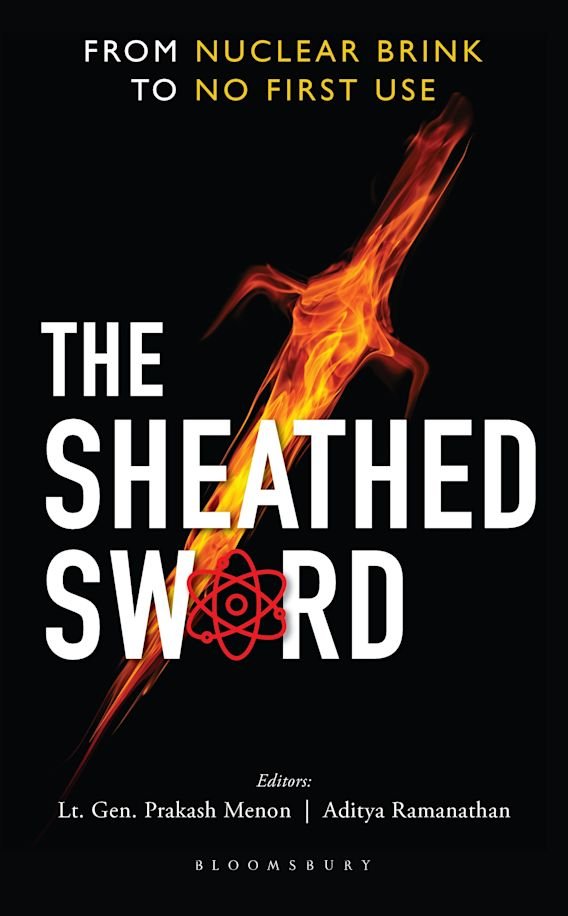When the Chips Are Down: A Deep Dive into a Global Crisis
When the Chips Are Down: A Deep Dive into a Global Crisis by Pranay Kotasthane & Abhiram Manchi (Bloomsbury) is releasing on November 18, 2023.
To the world at large, technology was synonymous with software. But in 2019, the conversations has changed dramatically. Today, the hardware that runs all software - semiconductors or chips - has become a subject of WhatsApp groups and international politics.
The chip shortage during COVID-19 made governments take notice of this complex supply chain. The US began denying advanced semiconductors to Chinese companies. Worsening China-Taiwan relations further intensified the debate. By 2022, China, the US, India, the EU, and Japan had released plans worth billions of dollars for setting up new semiconductor facilities.
This book is a comprehensive overview of this “meta-critical” technology. How are semiconductors important from a geopolitical perspective? Why did the US and Taiwan become powerhouses in this domain while Russia and India fell behind? Is China's semiconductor sector a threat to the world? What are the future trends to watch out for? These are the questions that this book answers.
Missing In Action: Why You Should Care About Public Policy
By Pranay Kotasthane and Raghu S. Jaitley
In India, public policies are all around us. Despite this pervasiveness, yeh public sab nahin jaanti hai (the public doesn't know it all). Questions are rarely asked of the Indian State-the institution that makes rules, bends them and punishes others for breaking the laws it creates. The privileged can afford not to think about the State because we have given up on it. The not-so-privileged have resigned themselves to a State that provides short-term benefits. Either way, we seldom pause to reflect on why the Indian State works the way it does.
Missing in Action aims to change such perceptions through sketches from everyday experiences to illustrate India's tryst with public policymaking. It acquaints the reader with some fundamental concepts of the public policy discipline. It explains the logic (or the lack of it!) of the Indian State's actions, shortcomings, constraints, and workings.
Jargon-free and accessibly written, the book achieves the difficult task of both entertaining and educating.
The Nitopadesha
By Nitin Pai
In the distant land of Gandhara, there once was a janapada called Chakrapuri. Its elders were a worried lot. Their children were uninterested in the welfare and upkeep of the janapada. Most of them were consumed by self-interest and avarice, seeking personal gains, even at the cost of their fellow citizens. Realizing that the young must learn the arts and crafts of citizenship, the Sabha of Chakrapuri decided to employ Nitina of Takshashila, whose wisdom was said to be unparalleled, to teach their children. So it came to pass that the unconventional scholar was entrusted with the charge of these boys and girls for the next ninety days.
Thus begins the Nitopadesha. A labyrinth of stories in the style of the Panchatantra and the Jataka tales, this is a book about good citizenship and citizen-craft that will speak to the modern reader. Covering aspects such as what citizenship means, the ethical dilemmas one faces as a citizen and how one can deal with social issues, Nitin Pai's absorbing translation is an essential read for conscientious citizens of all ages.
The Sheathed Sword: From Nuclear Brink to No First Use
By Lt. Gen. Prakash Menon and Aditya Ramanathan
After a brief interlude following the Cold War, nuclear weapons have regained their prominent place in world affairs. Yet our current nuclear age will not be a replay of the Cold War. New technologies, changing political contexts and the death of old arms-control agreements mean that today's nuclear strategists have to navigate unchartered waters filled with fresh perils. Unfortunately, the consequences of failure in the nuclear world can be catastrophic. The immediate imperative today is to lower the possibility of nuclear weapons use during a crisis or conflict involving nuclear powers. While deliberate or pre-emptive nuclear use is less likely, the rising danger of our time is that nuclear weapons will be employed due to some combination of miscommunication, misjudgment, misperception and sheer accident.
The Sheathed Sword: From Nuclear Brink to No First Use is a collection of essays by leading scholars and practitioners on the role of nuclear weapons in global security. The contributors examine how individual states view nuclear weapons, the devastating effects of nuclear war on the world's climate and the issues around nuclear no first use. They also debate the feasibility and desirability of a global no-first-use (GNFU) agreement.
Distance from Delhi—Essays on Geopolitics, Economics and Public Policy
India is not New Delhi and New Delhi is not India, though sometimes this gets forgotten. Distance from Delhi is a collection of essays and articles that reflect on India’s national interest – on economic reforms, international relations, public policy, national security and social transformation. The authors of this book are pioneers at the Takshashila Institution and have helped make it an innovative institution that brings together insights from various disciplines to the pubilc policy discourse in India. Takshashila engages in policy research, education and public persuasion to strengthen the intellectual foundations of an India with global interests. Removed from Delhi’s corridors of power and circles of influence, this book compiles fresh thinking and bold perspectives on India and its dynamic relationship with the world.







